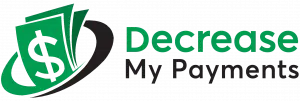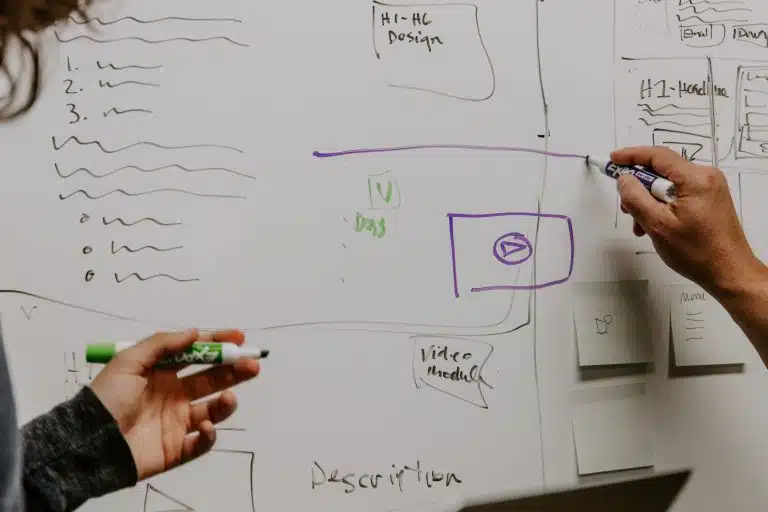We’ve all been there – bills piling up, credit card statements leaving us stressed, and that sinking feeling that we’re drowning in debt. If this sounds familiar, you’re not alone.
According to the Federal Reserve, total U.S. household debt reached over $14 trillion in 2021. Yikes! While debt consolidation and bankruptcy are options, did you know debt settlement could help eliminate your debt for less?
In this article, I’ll break down everything you need to know about taming debt through settlement. Stick with me and you’ll be well on your way to financial freedom.
Understanding What Debt Settlement Is

First things first, let’s clarify what exactly debt settlement entails. In simple terms, it’s when you work with a debt settlement company to negotiate with your creditors to reduce the balance you owe.
See, creditors would rather receive something than nothing at all. So a debt settlement agent will reach out to visa, mastercard, etc. on your behalf to settle for a lower amount – sometimes as little as 30-50% of what you originally borrowed.
The key is having money set aside in an account to make lump sum deals, rather than payments over time. Read on to see if settlement is the right path out of your debt jungle.
Weighing the Pros and Cons

The pros include:
- It tackles multiple debts at once, allowing you to simplify repayment into one monthly program. This streamlines an otherwise chaotic financial situation.
- Creditors are often willing to settle for 50% or less of the original balance owed. This immediately wipes out thousands in what seemed like impossible debt.
- By settling debts for less, more of your paycheck stays in your pocket each month rather than going towards interest and fees. This provides breathing room in your budget.
- Settling for less than full balances allows extra funds to finally be put towards savings goals, education costs, home repairs, or other financial priorities rather than just making minimum payments indefinitely. This can give a real sense of financial progress.
- Many find the 12-24 month timeline passes quickly as they focus all their effort on the end goal of settlement. Being able to see the light at the end of the tunnel helps motivate staying powered through temporary sacrifices.
However, there are also cons to consider:
- The settlement process normally takes 12-24 months as you save each month in a dedicated account. It requires short-term sacrifice and discipline to see the long-term benefits.
- There is no guarantee creditors will settle – some may pursue other options like wage garnishment if negotiations stall. You need to be prepared for various outcomes.”
- Settling debts for less than owed is reported to the credit bureaus, which can damage your scores for up to 7 years as accounts are closed. Future credit access may be tightened.
- While creditors often are willing to settle, there’s no guarantee they won’t pursue other collection remedies instead. Some may try wage garnishment to recoup more of what’s owed if negotiations stall. This litigation risk adds uncertainty.
- The damage to credit scores during an active settlement typically lasts 3 years post-program as closed accounts age. Another 4 years are then needed for marks to roll off reports. Rates on loans may be higher as a result for 7 years total.
- Some creditors have been known to incorrectly continue reporting accounts as in collections even after full settlement payment. This undermines progress and requires sometimes lengthy disputes to fix inaccurately damaged credit.
Weighing both the opportunities and potential downsides is crucial for determining if debt settlement fits each person’s unique situation and tolerance for risk. Understanding both is key to setting proper expectations.
Figuring Out If Settlement Fits Your Situation

Debt settlement shouldn’t be your first resort – it’s best considered only if you’ve explored other less drastic options first. As a general rule of thumb, it typically works best for those with $7,500 or more in unsecured debts.
Having high minimum payments that consume 30% or more of your monthly take-home pay is also usually a sign debt settlement could provide relief. But be realistic – can you realistically afford to set aside savings each month for 18-24 months?
Running the actual numbers with a reputable debt settlement company adviser is important. They can review your individual financial situation and recommend the best path forward. Here’s an example:
Reginina Gayle is a single mom with two kids. Over the years, she racked up $15,000 on credit cards getting by. With credit card interest, her minimum payments totaled $1,200 per month – an unsustainable 40% of her $3,000 net income.
After cutting costs everywhere she could, Reginina still couldn’t get ahead. Bankruptcy seemed too drastic, but a debt management program wouldn’t provide enough relief either with such high balances.
That’s when Reginina met with a debt settlement counselor. They determined that while it would be tight, she could realistically divert $800 monthly towards settlement if two accounts were settled for 50% of balances. In just 18 months she’d achieve freedom from over $7,500 in debt payments.
Realistic scenarios like Reginina’s can help you decide if debt settlement makes financial sense for your unique situation too when other options have been exhausted.
Assessing Your Finances
Before starting the process, get your ducks in a row by taking stock of your full financial picture. This means going through bank statements, credit reports – the works – to list all creditors, current balances, repayment terms, and interest rates.
Note any collection calls or letters as well. Organizing this info allows you and a debt settlement company to see your big picture debt load and monthly obligations more clearly. With the right information, a better settlement strategy can be crafted.

Picking the Right Debt Settlement Company
Now comes an important decision – choosing a reputable settlement firm to guide you. Look for transparently disclosed fees, positive online reviews, and accreditation from associations like the American Fair Credit Council (AFCC).
Make sure they’re experienced too, with a proven track record of positive outcomes. Trustworthy companies don’t charge any upfront or monthly fees and only get paid a portion of each settled debt.
Be wary of firms with hidden costs or unreasonable promises to clear your balance quickly. Do your research to find an ally equipped to fight for the best deals.
Preparing Your Documentation
Once partnered with a settlement program, it’s time to assemble the important paperwork they’ll need to start bargaining with creditors. Provide copies of recent pay stubs, bank statements, and your signed engagement agreement.

Creditors will want to verify both your income and debt amounts, so be ready to furnish whatever financial records are requested. Solid documentation expedites the negotiation process.
It shows lenders you’re serious about reducing balances and have the means to pay a settlement in full if agreed upon.
Mastering the Negotiation Process
Behind the scenes, your debt settlement agent goes to bat on monthly calls, emails, and letters with multiple lenders simultaneously. Patience is key, as offers may take a few rounds to get right.
Remember, the goal isn’t just to lower balances, but see interest and late fees waived too. Your negotiator looks at factors like how long accounts have been in default to play hardball.
Help them help you by diverting extra cash each month to designated settlement savings. As offers come in, agents ensure settlement terms are put into legally binding contracts before funds get dispersed.
Understanding Legal Considerations
While pursuing debt freedom through settlement, it’s good to keep a few notes on legal issues top of mind. Since settling for less than owed constitutes defaulting on loans, it will negatively impact your credit for up to 7 years.
There’s no getting around that fact. Additionally, some creditors may attempt to restart collections even after settling, so make sure settlement contracts are crystal clear.
As long as you stick to agreed terms, though, settlements should be reported as “paid for less than full balance” to credit bureaus.
Smart Post-Settlement Financial Management
Congratulations, with persistence and planning you’ve now settled multiple debts! This is a huge win worth celebrating. That said, maintaining healthy finances going forward requires diligence.

Create a budget, track spending, and rein in discretionary costs wherever able. Sustain new saving habits to avoid getting back in over your head.
You may also want to consider using alternative credit options for emergencies since settlement lingers on reports long term. The peace of mind from being debt-free is priceless though – enjoy it!
In Closing
Does debt settlement feel overwhelming? Take a deep breath – you’ve got this! With the right guidance, committing to a solid saving plan each month is very doable.
Never forget the reward of independence from lenders that awaits you. If bankruptcy seems too drastic or credit counseling too mild, settlement opens the door to quick relief. Just be sure to do your homework upfront with reputable programs. With awareness of both risks and rewards, you’ll make the choice that’s right for your situation.
Start your road to financial freedom today by requesting a free debt analysis from Decrease My Payments. The journey starts here – wishing you all the best!








